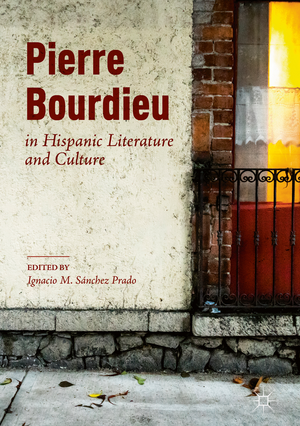Pierre Bourdieu in Hispanic Literature and Culture
Editat de Ignacio M. Sánchez Pradoen Limba Engleză Hardback – 20 mar 2018
| Toate formatele și edițiile | Preț | Express |
|---|---|---|
| Paperback (1) | 634.47 lei 6-8 săpt. | |
| Springer International Publishing – 4 ian 2019 | 634.47 lei 6-8 săpt. | |
| Hardback (1) | 639.88 lei 6-8 săpt. | |
| Springer International Publishing – 20 mar 2018 | 639.88 lei 6-8 săpt. |
Preț: 639.88 lei
Preț vechi: 752.80 lei
-15% Nou
Puncte Express: 960
Preț estimativ în valută:
122.44€ • 128.30$ • 101.22£
122.44€ • 128.30$ • 101.22£
Carte tipărită la comandă
Livrare economică 12-26 aprilie
Preluare comenzi: 021 569.72.76
Specificații
ISBN-13: 9783319718088
ISBN-10: 3319718088
Pagini: 336
Ilustrații: XII, 327 p.
Dimensiuni: 148 x 210 mm
Greutate: 0.56 kg
Ediția:1st ed. 2018
Editura: Springer International Publishing
Colecția Palgrave Macmillan
Locul publicării:Cham, Switzerland
ISBN-10: 3319718088
Pagini: 336
Ilustrații: XII, 327 p.
Dimensiuni: 148 x 210 mm
Greutate: 0.56 kg
Ediția:1st ed. 2018
Editura: Springer International Publishing
Colecția Palgrave Macmillan
Locul publicării:Cham, Switzerland
Cuprins
1 Introduction.- Part I Conceptual Engagements and Legacies: Bourdieu Through Latin America.- 2 Bourdieu’s Imposition of Form and Modernismo: The Symbolic Power of a Literary Movement.- 3 Bourdieu in Latin America Through the Eyes of Néstor García Canclini.- 4 Reading Mexican Mestizaje and Carlos Fuentes Through Bourdieu.- Part II Field Theory and Latin American Culture.- 5 Aesthetic Rivalries in Avant-Garde Mexico: Art Writing and The Field of Cultural Production.- 6 José María Arguedas, Creator of Creators. Arte Popular in the Field of Cultural Production.- 7 Cruel Dispositions: Queer Literature, the Contemporary Puerto Rican Literary Field and Luis Negrón’s Mundo Cruel (2010).- 8 The Public Economy of Prestige. Mexican Literature and the Paradox of State-Funded Symbolic Capital.- Part III Iberian and Transatlantic Cultural Fields.- 9 Discord and Solidarity: Spain, Argentina, and Mexico in El Estudiante (Salamanca,Madrid 1924-26).- 10 Below and Above the Nation: Bourdieu, Hispanism, and Literary History.- 11 Pierre Bourdieu, Indignado: Social and Symbolic Struggles in Spain’s 15-M.- 12 Post Scriptum: Illusio and the Reproduction of the Corps—Notes from an Ambivalent Gatekeeper.
Recenzii
“This collection achieves its goal of demonstrating Bourdieu’s continued relevance in the field of Hispanic studies. … this volume adds important voices on culture and literature to that conversation.” (Katie J. Vater, Studies in 20th & 21st Century Literature STTCL, Vol. 43 (2), September, 2019)
Notă biografică
Ignacio M. Sánchez Prado is Professor of Spanish and Latin American Studies at Washington University in Saint Louis, USA. He is the author of numerous books, the most recent of which is Strategic Occidentalism: On Mexican Fiction, the Neoliberal Book Market and the Question of World Literature (forthcoming). He has co-edited a dozen collections and has published over eighty scholarly articles on Latin American literature and culture.
Textul de pe ultima copertă
Pierre Bourdieu in Hispanic Literature and Culture is a collective reflection on the value of French sociologist Pierre Bourdieu’s work for the study of Spanish and Latin American literature and culture. The authors deploy Bourdieu’s concepts in the study of Modernismo, avant-garde Mexico, contemporary Puerto Rican literature, Hispanism, Latin American cultural production, and more. Each essay is also a contribution to the study of the politics and economics of culture in Spain and Latin America. The book, as a whole, is in dialogue with recent methodological and theoretical interventions in cultural sociology and Latin American and Iberian studies.
Caracteristici
Provides a wide-ranging reflection on questions of cultural power and symbolic capital Illustrates the historical development of Latin American and Iberian cultural institutions Contributes to current discussions on the indignado movement, the precarization of academia, and the reconfiguration of the cultural fields in Latin America and Spain
